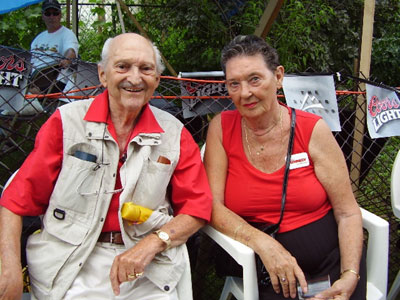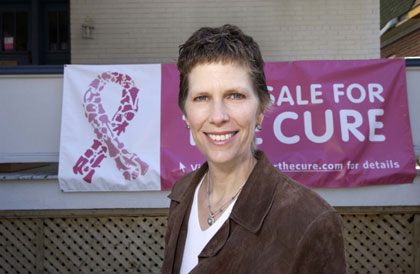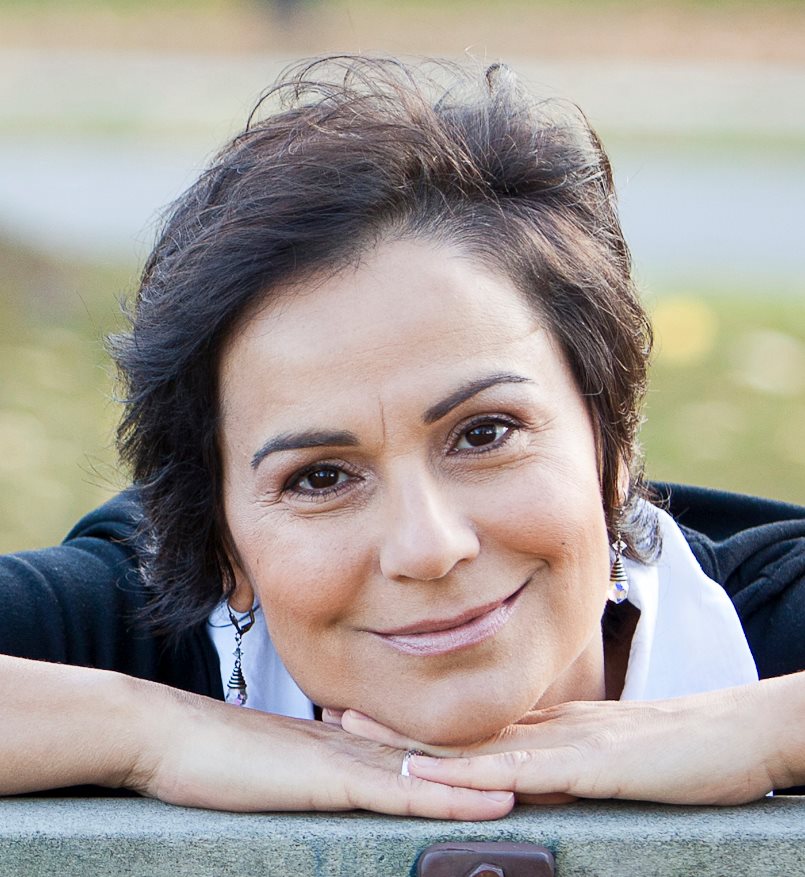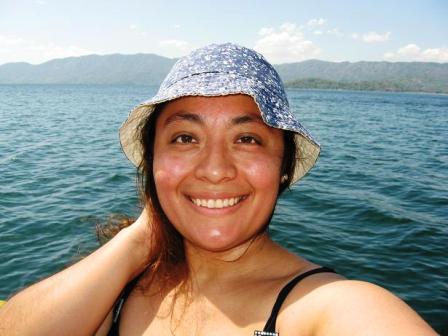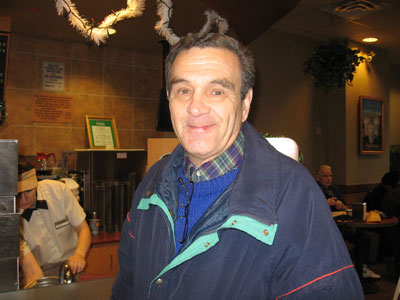Interesting people are everywhere. I met Ben Viccari a few weeks ago at the initial screening of a documentary called “Small Places – Small Homes”. The documentary profiled the life of four immigrant families who had chosen to settle in small rural Canadian towns and spoke to their unique challenges and adjustment experiences. During the party afterwards I was introduced to Ben Viccari, a distinguished writer and journalist, and a pioneer of Canadian multiculturalism.
Ben is a fascinating individual – at almost 90 years of age he is in the process of creating his second television documentary and involved in multiple projects at the same time. Ben has decades of public relations experience and during the last quarter century also became involved in ethnic publications. At present Ben is the President of the Canadian Ethnic Media Association which speaks to issues of immigrant settlement, heritage preservation and the ethnic communities’ role in nation building.
He is also a regular commentator on Omni Television and runs an online publication called “Canscene” which introduces the reader to multicultural issues in Canada. In this article Ben shares with us his life experience throughout his early years, the Second World War, and his almost 60 years in Canada. He also gives us insight into his unique views on Canada’s role as a potential model nation in terms of how we deal with immigration and immigrant settlement, notions that are very dear to my own heart.
I was amazed by Ben’s energy and creativity and enjoyed the time we spent in a little restaurant along Bloor Street, learning from a man whose life experience spans almost a century, a man whose energy, creativity and broad-mindedness captivate.
1. Please tell us about yourself and your background.
I am a Canadian well qualified, I believe, to speak for multiculturalism and diversity through my mixed parentage, early education at a London school with an international student body, travel abroad, followed in Canada since the late 1940s by a diverse career in communications much of which has placed me in contact with Canadians from a wide variety of origins and backgrounds

Ben at the provincial archive, Winnipeg with the complete issues of
the Icelandic Framfari, first ethnic newspaper published in Manitoba,
in a scene from The Third Element
2. You grew up in England as the child of Italian immigrants. Please tell us more about that.
My father, an Italian immigrant to Britain, met and married my mother, an Englishwoman. They had two children, my younger brother John and me, seven years his senior. Our delight was to grow up in a home in which husband and wife enjoyed mutual respect for each other’s national traits. We lived in an ambiance of being loved and in turn, loving.
In those days, marriage to a foreign citizen who was not naturalized meant wife and children were Italian nationals and a sense of duality became natural to us. We ate chicken cacciatore and olives, roast beef and Yorkshire pudding and rejoiced when Dad came home with sticks ot torrone, Italian nougat bought at Barale and Crippa an Italian grocery in the heart of Soho. Also their tangy salami. And while my Italian grandparents were still alive, they mailed boxes of home made salami, soppressata and goat cheese to us.
3. Your working life originally started out in the barber shop of your father. Please tell us more about that.
From childhood, I loved being read to and even made up my own stories. I remember my mother recounting that I had created a fictional country that I frequently “visited.” It was peopled entirely by cats and I called it “Abloo Labloo Land.” Even before I started kindergarten I knew the alphabet and could detect certain printed words and by seven sensational papers like News of the World were hidden away from me.
My favourite subjects were English, French and History and not being much of a sportsman or gymnast I revelled in opportunities to participate in school dramatics and class performances of Shakespeare.
There was a brief fling at pro theatre when at 15 I joined a troupe of youngsters at the spacious Wimbledon home of the Thursby-Pelhams. The husband was a prominent English lawyer and his wife born in Mexico but raised in England had brought up her children Lola and Marshall in a theatrical atmosphere. She had written a children’s Christmas play in which a school is magically transported to all corners of the world.
I played Ronnie, the third juvenile lead after Lola and Marshall and the famous music hall comedian Harry Tate was engaged to play the school teacher. By the time the show was sufficiently rewritten, rehearsed and ready to go, no London theatres were available and the idea of a West End production abandoned, but we gave a few performances in aid of charity at town halls and other locations with stage facilities. I remain a ham at heart and during my army years, organized a number of shows performed by soldiers.
My reverence for the spoken and written word is perhaps what has most governed my life. I attended Pitman’s College where I learned typing and shorthand skills. I was disappointed that I could never get into journalism even at the entry level of copy boy or some other menial job. Oddly enough, my father encouraged me in my search and never insisted on my becoming a hairdresser.
At age 17, I became a hairdresser feeling I owed it to my father who had tried so hard to get me introductions to press people. I was first apprenticed to a large salon at Liverpool St. Station and then attended hairdressing schools.
My father remained a barber but had excellent management skills and rose to be manager of the ladies and gents salon at the world renowned Claridges hotel. In 1935, he opened a small salon of his own and two years later a much larger business on Cork Street, in the heart of the Saville Row district. The clientele included the aristocracy, the greats of politics and diplomacy and many people from the arts and entertainment world: Anton Walbrook, Valerie Hobson, Jan Masaryk, Sir David Lean, Sir Arthur Bliss, Alexander Korda, to name a few. The window of the salon carrried the Royal Warrant, the official coat of arms of the House of Windsor, granted because one of Dad’s personal clients was a Royal Duke — I can’t remember which one.
I worked at the entry level at the Cork Street establishment and then found jobs in the suburbs, but my heart was never in the craft deeply enough to take it to the art that my father and his contemporaries raised it. Today, in the light of the fate that befell millions it seems sinful to say that I joined the army with a sense of relief.
4. You were also fighting for the British Army during World War II. What was your role and where were you stationed?
I was able to claim British citizenship at age 21, along with my mother and thus eligible to join the army. Although I would have been conscripted anyway, I was able to volunteer and so to choose the Royal Artillery rather than the PBI (Poor Bloody Infantry.)
I was one of the few people of my age to be fortunate enough to own and drive a car, which I‘d been given for my 21st birthday, so I automatically became a driving instructor at the helm of a dual control vintage Rolls Royce which to my chagrin was speed-governed to 30 mph.
That period lasted from October ‘39 to March ‘40 when I was shipped to France with a draft of reinforcements, not to replace casualties for this was the period of the Phony War and two mighty armies faced each other across the Maginot Line, only firing token shots occasionally. Many troops were already going home to England on leave and as they trickled off, some of us were sent to the front lines to replace them in their activity.

New Years’ Day, 1948. Why Bill McVean was holding his golf club, neither of us can remember, but in my own memory, this was and still is a landmark of my life here — to enjoy such hospitality so soon after arriving in Canada.
